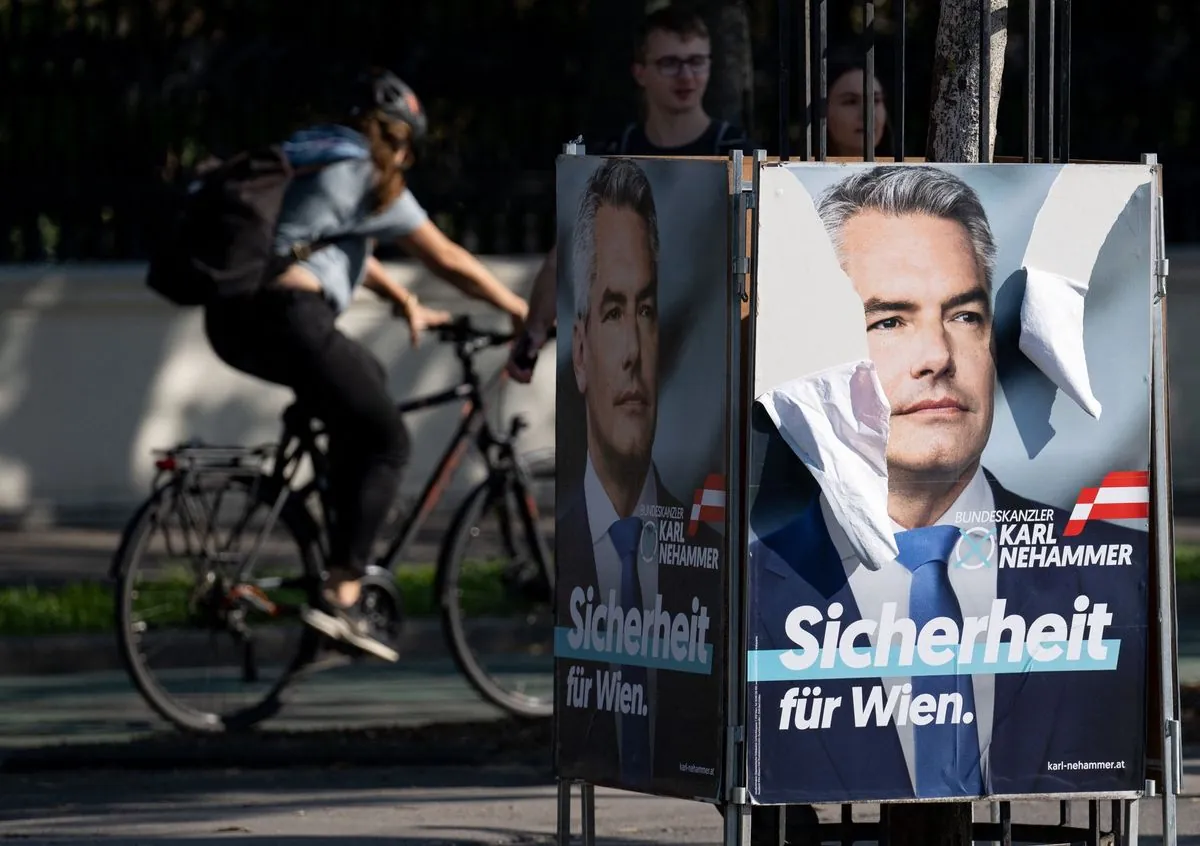As Austria prepares for its national election this Sunday, the far-right Freedom Party, led by Herbert Kickl, stands on the brink of a historic victory. This potential outcome reflects growing voter anxieties about immigration, inflation, and international conflicts, mirroring recent far-right gains across Europe.
Kickl, who has been at the helm of the Freedom Party since 2021, aspires to become Austria's new chancellor. His campaign has stirred controversy, particularly for using the term "Volkskanzler" (chancellor of the people), which has historical associations with Nazi rhetoric. Despite this, Kickl has dismissed comparisons to Adolf Hitler.
Recent polls indicate a tight race, with the Freedom Party leading at 27%, followed closely by Chancellor Karl Nehammer's Austrian People's Party at 25% and the center-left Social Democrats at 21%. This marks a significant turnaround for the Freedom Party since the 2019 election, where they secured only 16.2% of the vote following a political scandal.
The Freedom Party's resurgence can be attributed to its ability to capitalize on voter frustrations stemming from various crises. Austria, like many European nations, has grappled with the economic fallout of the COVID-19 pandemic, experiencing inflation rates averaging 4.2% over the past year, surpassing the EU average. The party has also tapped into concerns about migration and security, advocating for stricter border controls and asylum policies.
Austria, a federal republic since 1955, has a rich political history and a complex relationship with its past. The country's neutrality, dating back to the Cold War era, has shaped its foreign policy for decades. However, the current political landscape reflects a shift in public sentiment, with traditional centrist parties facing challenges from the far-right.
The Freedom Party's platform includes controversial proposals such as the "remigration of uninvited foreigners" and achieving a more "homogeneous" nation. These policies have raised concerns among opposition parties and political analysts about the potential impact on Austria's democratic institutions and international relations.
Andreas Babler, leader of the Social Democrats, has positioned himself as the antithesis to Kickl, ruling out any coalition with the far-right and labeling the Freedom Party leader "a threat to democracy." This stance reflects the deep divisions within Austrian politics and the challenges that lie ahead in forming a stable government post-election.
The outcome of Sunday's election could have far-reaching implications for Austria's role in the European Union and its approach to international issues. The Freedom Party's skepticism towards EU policies and its critical stance on Western military aid to Ukraine signal potential shifts in Austria's foreign policy if they secure a victory.
As Austrians head to the polls, they face a choice that could reshape their country's political landscape. The election results will not only determine the next government but also reflect the nation's response to the complex challenges of the 21st century, from climate change to economic stability and social cohesion.
"You don't really feel safe in your own country anymore. But then you're being branded as right-wing just because you think about safety of your own people, the kids and women."
This sentiment echoes the concerns of many voters who have turned to the Freedom Party, seeking answers to their anxieties about national identity and security in an increasingly globalized world.
As the election approaches, Austria stands at a crossroads, with its rich cultural heritage and democratic traditions juxtaposed against the rising tide of populism. The outcome will not only shape Austria's future but also contribute to the ongoing dialogue about the direction of European politics in the face of contemporary challenges.
